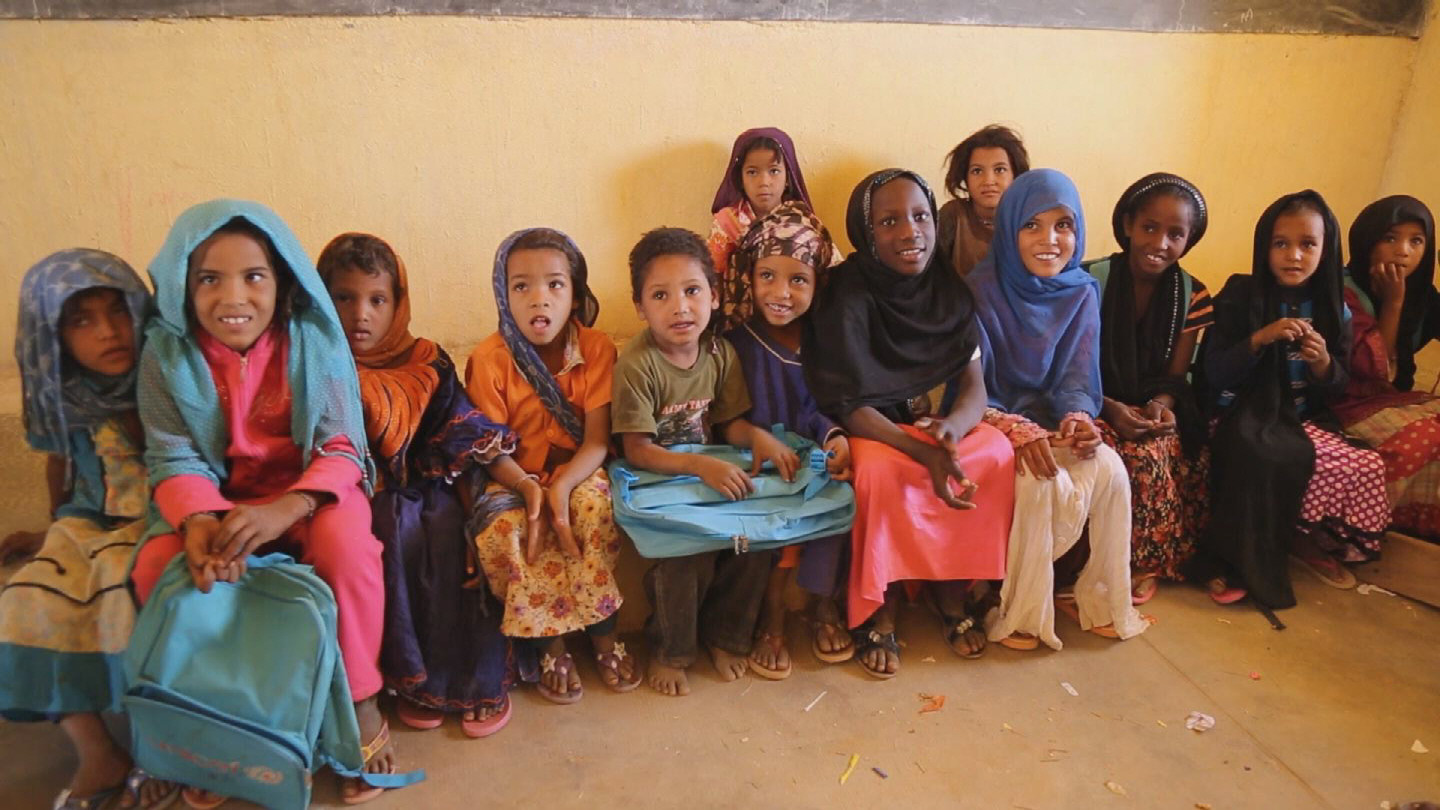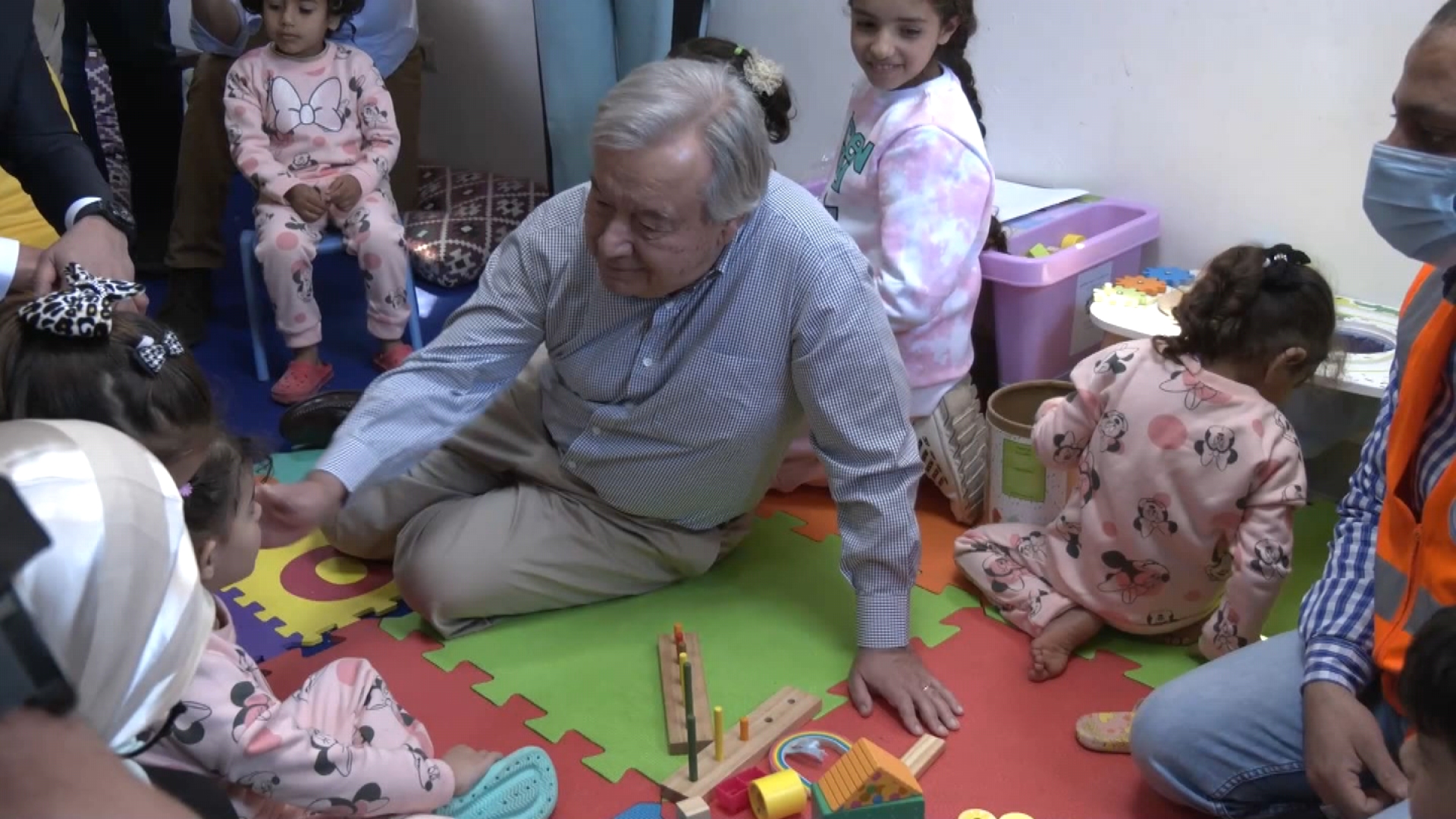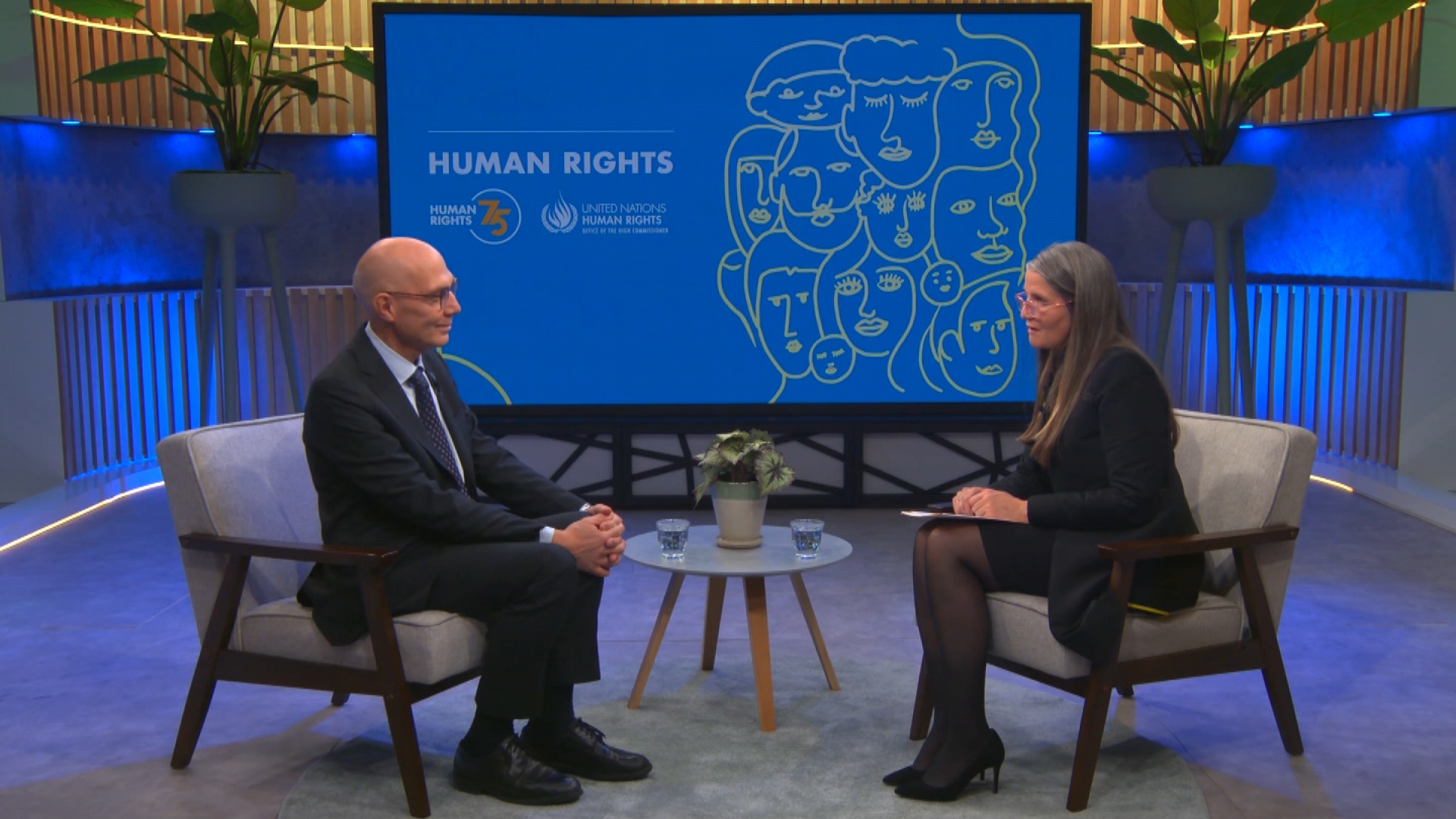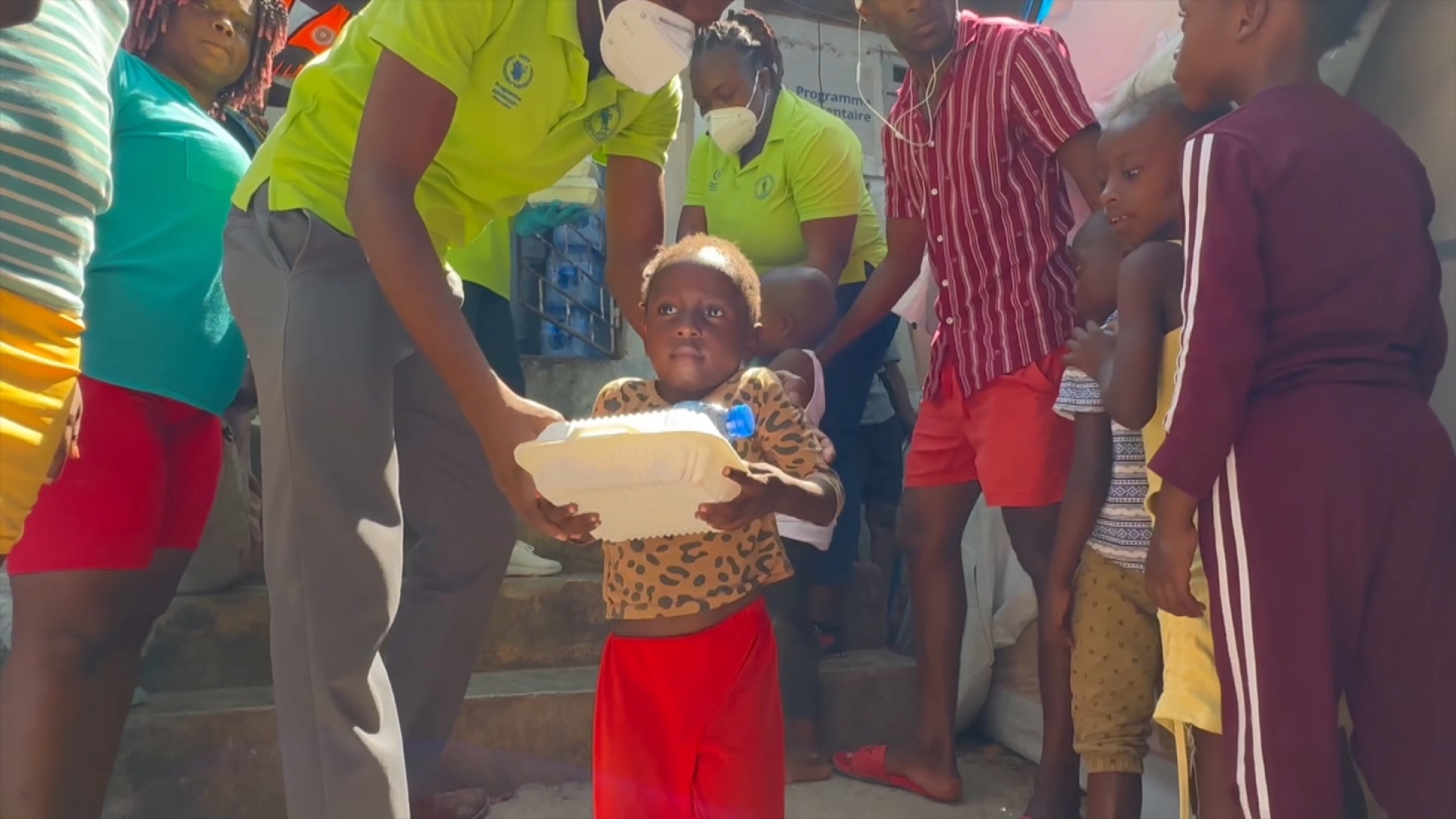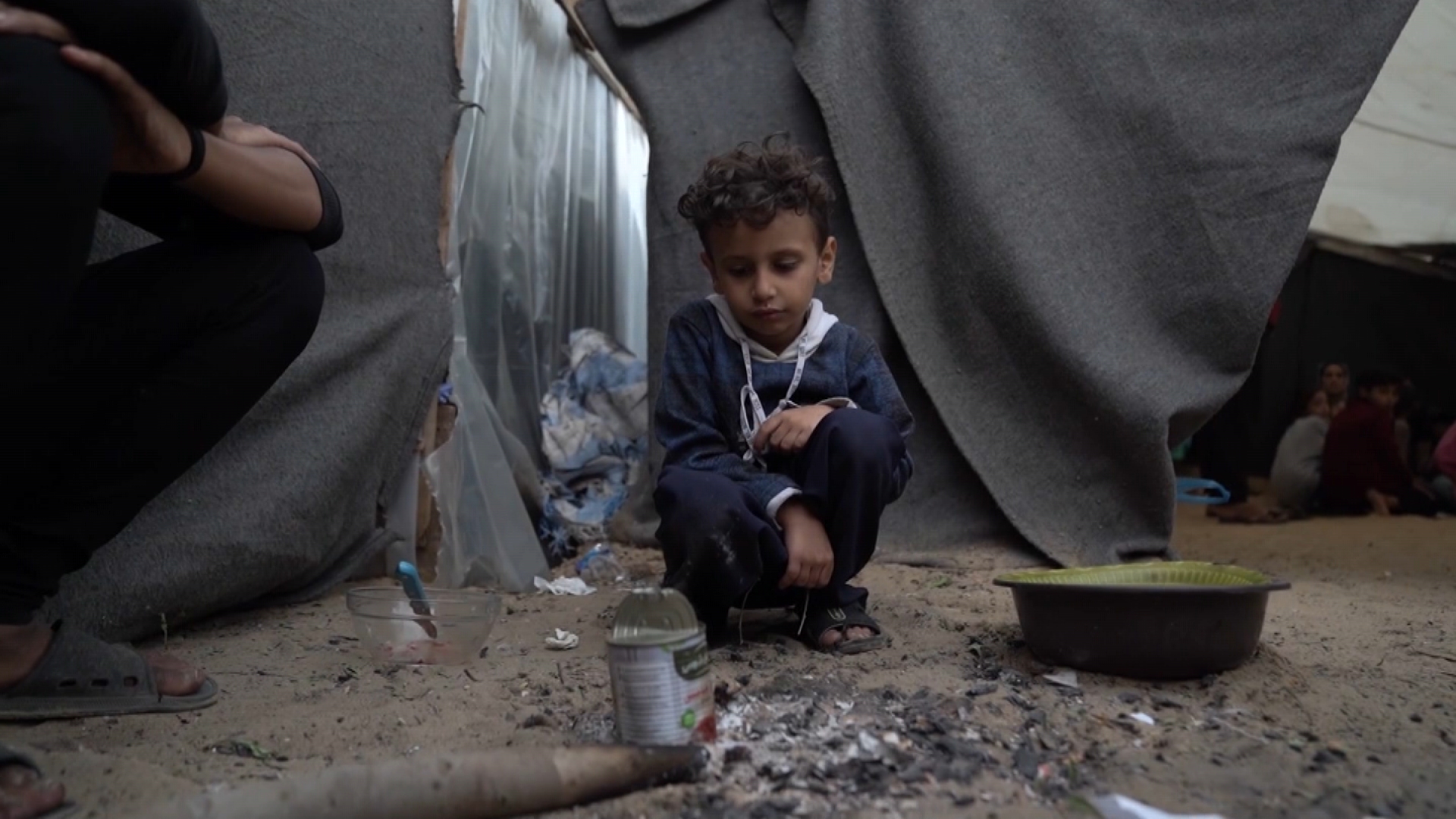UN / GAZA CHILDREN KHAN YOUNIS WRAP
STORY: GAZA / CHILDREN KHAN YOUNIS WRAP
TRT: 04:59
SOURCE: UN NEWS
RESTRICTIONS: NONE
LANGUAGE: ENGLISH / NATS
DATELINE: 11 APRIL 2024, KHAN YOUNIS / RAFAH, GAZA, PALESTINE
11 APRIL 2024, KHAN YOUNIS, GAZA, PALESTINE
1. Various shots, thick black smoke behind destroyed buildings
11 APRIL 2024, RAFAH, GAZA, PALESTINE
2. SOUNDBITE (English) Tess Ingram, Spokesperson, UNICEF:
“I was in that car that was hit. It was waiting at a holding point just south of the Wadi Gaza checkpoint, where we are often instructed to wait before being called through the checkpoint. We were waiting there as instructed, and gunfire broke out in the vicinity. It seemed to be coming from the direction of the checkpoint towards, civilians, who then turned and fled from the checkpoint. Luckily, myself and my colleagues, we were all safe. But this just underscores how dangerous it is for humanitarian aid workers in Gaza at the moment that incidents like this continue to happen when they absolutely shouldn't.”
11 APRIL 2024, KHAN YOUNIS, GAZA, PALESTINE
3. Various shots, destroyed UNRWA buildings
11 APRIL 2024, RAFAH, GAZA, PALESTINE
4. SOUNDBITE (English) Tess Ingram, Spokesperson, UNICEF:
“We decided to go ahead because it was such a critical mission with nutrition products for the children who were malnourished in the north of Gaza, among other things. Unfortunately, after deciding that we would go ahead, we were still delayed. We waited at that holding point for at least another two hours before deciding that the mission was no longer feasible, because we didn't have enough time. Even if we were given the green light to go up, conduct all of our activities, and then get back.”
11 APRIL 2024, KHAN YOUNIS, GAZA, PALESTINE
5. Various shots, destroyed buildings
11 APRIL 2024, RAFAH, GAZA, PALESTINE
6. SOUNDBITE (English) Tess Ingram, Spokesperson, UNICEF:
“This is, you know, something that happens almost every day in Gaza. Not always to us, but to the children as well. And I've seen so many examples here of children who've been wounded in this war. And it's just heartbreaking.”
11 APRIL 2024, KHAN YOUNIS, GAZA, PALESTINE
7. Travelling shot, people walking among destroyed buildings
11 APRIL 2024, RAFAH, GAZA, PALESTINE
8. SOUNDBITE (English) Tess Ingram, Spokesperson, UNICEF:
“It's tragic to see anybody suffering from malnutrition, which is such a painful condition, let alone in a place where malnutrition was almost non-existent before October. And it's now skyrocketed in the north of Gaza, because of disruptions to food production, but also because of restrictions on aid access to that area. We've really struggled to get up there with aid. And as a result, we know that children are dying of malnutrition, that at least twenty-three children have reportedly died at the Kamal Adwan Hospital, which is where we were trying to bring these nutrition treatments on Tuesday.”
11 APRIL 2024, KHAN YOUNIS, GAZA, PALESTINE
9. Travelling shot, destroyed high rise and other buildings
11 APRIL 2024, RAFAH, GAZA, PALESTINE
10. SOUNDBITE (English) Tess Ingram, Spokesperson, UNICEF:
“Doctors are struggling to provide the care that they want to, and that they used to in Gaza. It means that supplies are running out. It means that staff are unable to be paid salaries, and many more of them are having to become volunteers. And that's not sustainable because they have to be able to support their families in such desperate conditions. It means that children are dying without the appropriate medical care, or they're unable to receive treatment that they need.”
11 APRIL 2024, KHAN YOUNIS, GAZA, PALESTINE
11. Various shots, people among the ruins of the city
UNICEF spokesperson Tess Ingram described how the vehicle she was travelling in was hit by live ammunition while waiting to enter northern Gaza. New footage shows the level of devastation in Khan Younis after the recent withdrawal of Israeli ground troops.
Ingram said, “I was in that car that was hit. It was waiting at a holding point just south of the Wadi Gaza checkpoint, where we are often instructed to wait before being called through the checkpoint. We were waiting there as instructed, and gunfire broke out in the vicinity. It seemed to be coming from the direction of the checkpoint towards, civilians, who then turned and fled from the checkpoint. Luckily, myself and my colleagues, we were all safe. But this just underscores how dangerous it is for humanitarian aid workers in Gaza at the moment that incidents like this continue to happen when they absolutely shouldn't.”
Despite their intention to continue their mission to the north of Gaza, the operation had to be aborted.
Ingram said, “we decided to go ahead because it was such a critical mission with nutrition products for the children who were malnourished in the north of Gaza, among other things. Unfortunately, after deciding that we would go ahead, we were still delayed. We waited at that holding point for at least another two hours before deciding that the mission was no longer feasible, because we didn't have enough time. Even if we were given the green light to go up, conduct all of our activities, and then get back.”
She made clear this type of situation is an almost daily occurrence in Gaza.
Ingram said, “this is, you know, something that happens almost every day in Gaza. Not always to us, but to the children as well. And I've seen so many examples here of children who've been wounded in this war. And it's just heartbreaking.”
Their mission was bringing desperately needed nutritional treatments to the north of Gaza.
Ingram said, “it’s tragic to see anybody suffering from malnutrition, which is such a painful condition, let alone in a place where malnutrition was almost non-existent before October. And it's now skyrocketed in the north of Gaza, because of disruptions to food production, but also because of restrictions on aid access to that area. We've really struggled to get up there with aid. And as a result, we know that children are dying of malnutrition, that at least twenty-three children have reportedly died at the Kamal Adwan Hospital, which is where we were trying to bring these nutrition treatments on Tuesday.”
Ingram described how children are dying without appropriate medical care in the north of Gaza.
She said, “doctors are struggling to provide the care that they want to, and that they used to in Gaza. It means that supplies are running out. It means that staff are unable to be paid salaries, and many more of them are having to become volunteers. And that's not sustainable because they have to be able to support their families in such desperate conditions. It means that children are dying without the appropriate medical care, or they're unable to receive treatment that they need.”
Meanwhile, civilians began to return to Khan Younis, the largest city in southern Gaza, after Israel pulled back its ground forces this weekend.
A UN team carried out an assessment mission to the city. Every building the team visited and most they could see had been damaged, with paved roads reduced to dirt tracks.
The team inspected a UN warehouse, four medical centres and eight schools. They reported seeing very significant damage in all but one of those buildings.
Streets and public spaces in Khan Younis are littered with unexploded ordnance, posing severe risks to civilians, especially children.
The team found unexploded 1,000-pound bombs lying on the main intersections and inside schools.
Residents described dire shortages of food and water and the loss of critical health services due to the destruction of Al-Nasser and Al-Amal hospitals.

